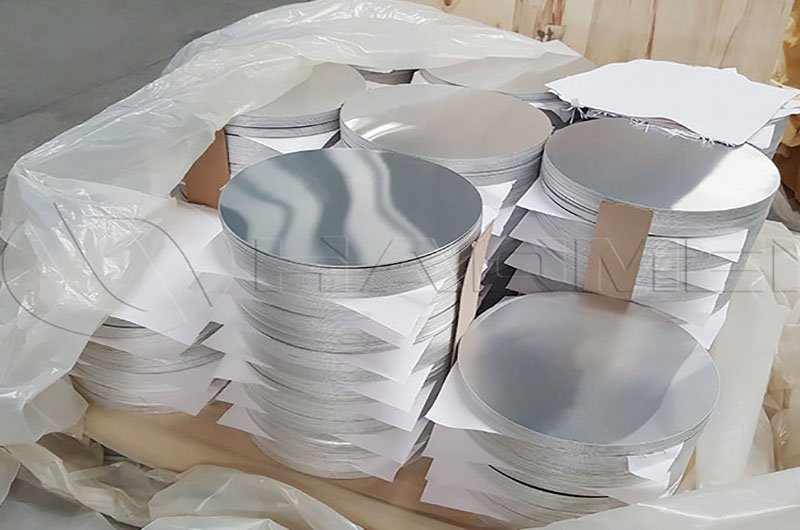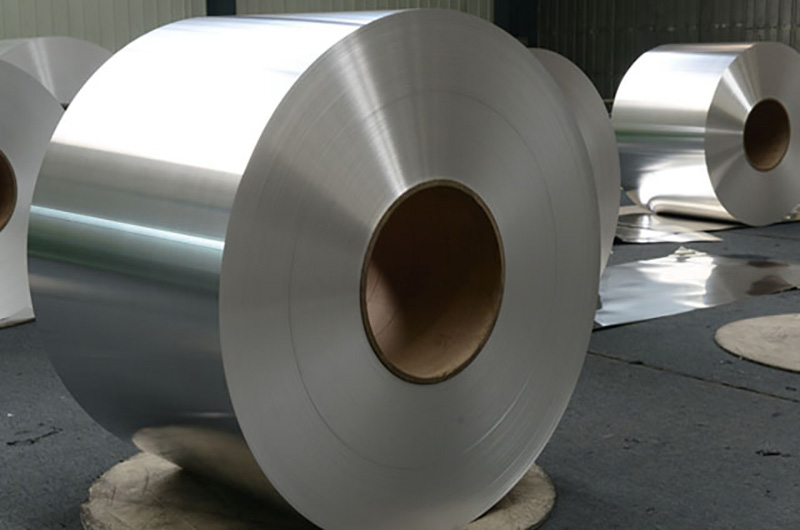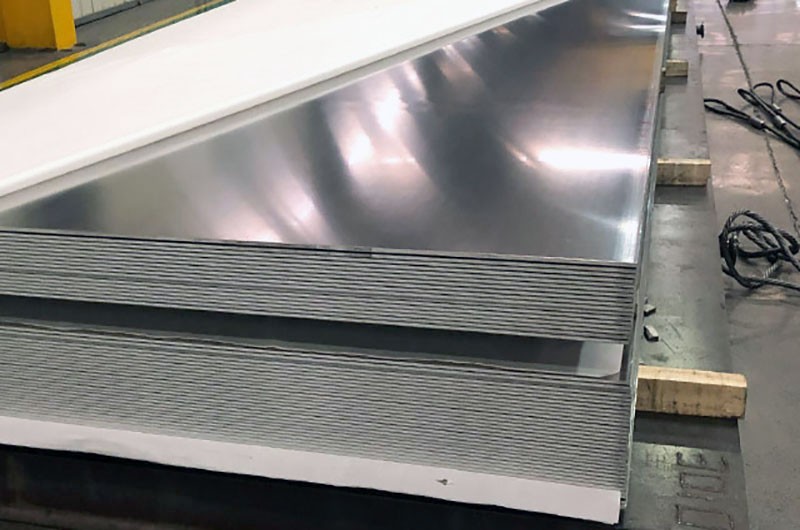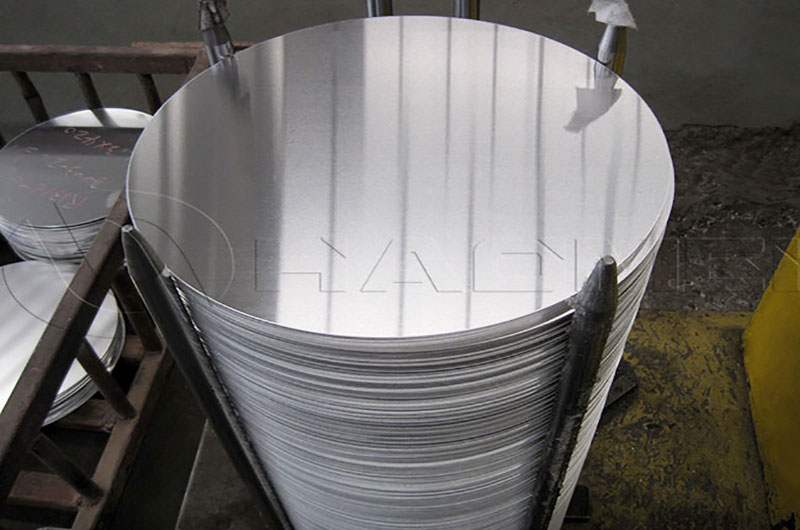- Polished DC 3003 aluminum disc characteristics
- Polished DC 3003 aluminum disc Specifications
- Polished DC 3003 Aluminum Circles for Baking Tray Advantages
- What is DC? Why do 3003 aluminum wafers in baking trays use DC?
- Why are DC 3003 aluminum discs for baking trays polished?
- Manufacturing process of Polished DC 3003 aluminum discs
As an important part of baking trays, Polished DC 3003 aluminum discs not only play a key role in kitchen utensils, but are also widely used in the baking industry.
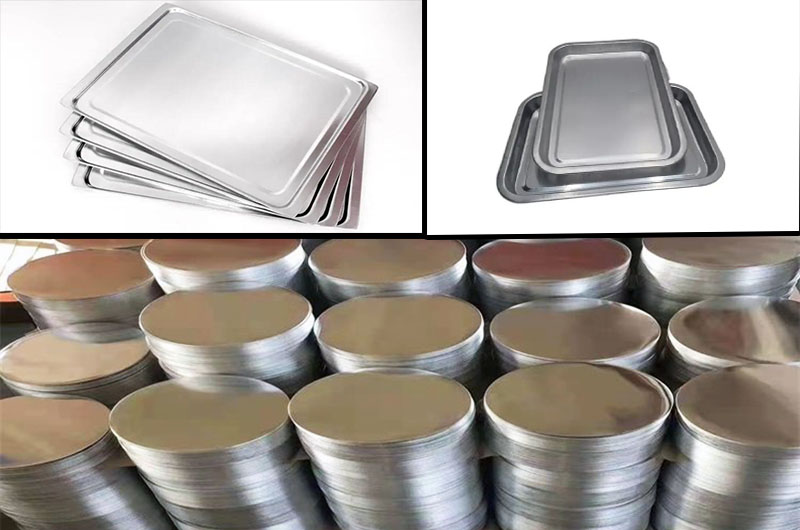
Polished DC 3003 aluminum disc characteristics
- Material advantages: Made of high-quality 3003 aluminum discs, which have excellent strength and corrosion resistance.
- Surface finish: After polishing treatment, the surface finish is high, food residue is not easy to adhere to, and it is easy to clean.
- Good thermal conductivity: 3003 aluminum has good thermal conductivity, allowing it to transfer heat evenly during the baking process, ensuring that food is evenly heated.
- Lightweight design: Compared with other metals, aluminum's lightweight design makes the baking tray easier to carry and use.
Polished DC 3003 aluminum disc Specifications
| Specification | Details |
|---|---|
| Material / Temper | 3003 aluminum alloy, commonly available in O and H series |
| Thickness | Typically ranging from 0.5mm to 4mm, adjustable based on requirements |
| Diameter | Depending on baking tray design requirements, various diameter options available |
| Surface Treatment | Polished, enhancing surface smoothness and appearance |
| Intended Use | Specifically designed aluminum circles for baking trays |
| Characteristics | Exhibits good thermal conductivity, corrosion resistance, and ease of cleaning |
Polished DC 3003 Aluminum Circles for Baking Tray Advantages
- Thermal conductivity
- Advantages of high thermal conductivity
- Uniform heat conduction
- Corrosion resistance
- Antioxidant properties
- Corrosion resistance
- The importance of surface polishing
- Improve product appearance
- Increase surface finish
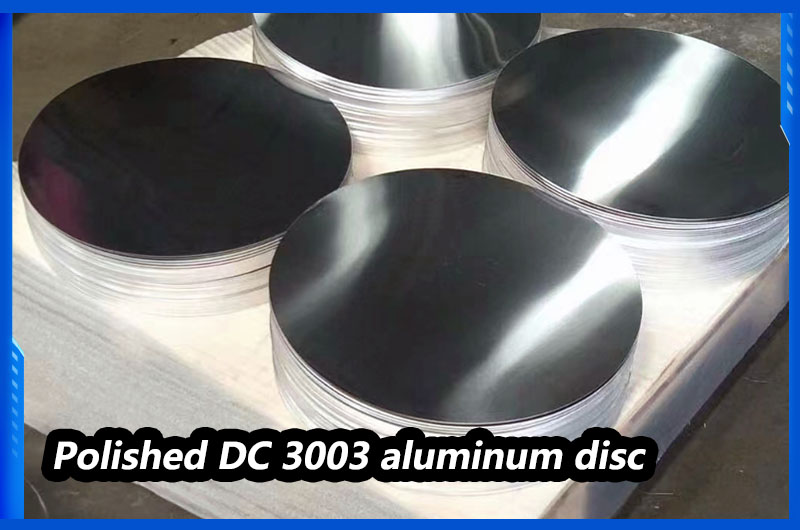
What is DC? Why do 3003 aluminum wafers in baking trays use DC?
DC refers to the Direct Chill cold extrusion process, which is a manufacturing process commonly used in aluminum alloy processing. In the DC cold extrusion process, aluminum alloy billets are extruded through DC to form various cross-sectional shapes, including discs, square tubes, etc. For 3003 aluminum discs used in baking trays, the DC cold extrusion process has the following advantages:
- Uniformity and stability: DC cold extrusion process can ensure the uniformity and stability of aluminum wafers. Through the DC method, aluminum alloys are subjected to more uniform stress distribution during the extrusion process, resulting in more consistent product quality.
- Mechanical performance improvement: DC cold extrusion process has a certain improvement effect on the mechanical properties of aluminum alloy. The 3003 aluminum discs treated by this process have higher strength and hardness, and are suitable for making baking trays that require a certain strength.
- Cost-Effectiveness: DC cold extrusion is a relatively efficient manufacturing process that can produce aluminum discs on a large scale in a short period of time, thereby reducing production costs. This is very important when making large quantities of baking pans.
- Good controllability: The DC cold extrusion process can better control the temperature and speed during the extrusion process, thereby more accurately grasping the size and shape of the product and ensuring that the final product meets the design requirements.
Generally speaking, the use of DC cold extrusion process to manufacture 3003 aluminum discs can ensure the quality, stability and mechanical properties of the product, while improving production efficiency and reducing costs, making it an ideal choice for baking tray manufacturing.
Why are DC 3003 aluminum discs for baking trays polished?
There are several important reasons why Polished DC 3003 aluminum discs should be polished when used in baking trays:
Surface finish: Polishing treatment can significantly improve the surface finish of aluminum wafers. During the baking process, food tends to adhere to the surface of the container, and the surface of the polished aluminum disc is smoother, which reduces the adhesion of food residue and makes cleaning easier.
- Reduce adhesion: After the aluminum disc is polished, the microscopic unevenness on the surface will be smoothed, reducing the chance of adhesion. When used in baking dishes, this property helps prevent food from sticking to the surface, reducing waste and cleanup during baking.
- Improved visual appeal: The polished finish not only improves the functionality of the aluminum discs, but also makes them look brighter and more attractive. In the baking industry, appearance is often directly related to the taste and quality of food. The polished finish gives the aluminum discs a better appearance, making them more attractive for commercial baking.
- Corrosion resistance: Polishing not only improves the appearance, but also improves the corrosion resistance of the aluminum discs. The polished surface is smoother and less susceptible to corrosion or oxidation, extending the service life of the product.
- Better thermal conductivity: Polishing helps improve the thermal conductivity of aluminum surfaces. During the baking process, good thermal conductivity can ensure that food is heated evenly and avoid uneven baking caused by uneven temperature.
Overall, Polished DC 3003 aluminum discs can provide better performance in baking trays through polishing, which not only makes the baking process more convenient and efficient, but also improves the overall quality and appearance appeal of the product.
Manufacturing process of Polished DC 3003 aluminum discs
- 1. Material selection and preparation
- 2. Plate cutting
- 3. Stamping and forming
- 4. Surface polishing
- 5. Testing and packaging
- 6.Quality inspection
- 7. Packaging
- Material selection: High-purity 3003 aluminum alloy is selected to ensure product quality and performance.
- Material pretreatment: Improve the strength and hardness of aluminum alloy through quenching, aging and other processes.
- Cold extrusion molding: The direct current (DC) cold extrusion process is used to ensure the uniformity and stability of the product.
- Surface polishing: Use high-tech polishing equipment to make the surface of the aluminum wafer smooth and bright, increasing the ornamental value and durability of the product.
- Inspection and quality control: Through strict inspection processes, it is ensured that each Polished DC 3003 aluminum disc meets high standard quality requirements.
Informations you may be interested in:
- 1060 Aluminum Circle Discs Blanks for Pot
- 1060 Aluminum Circle Discs for Cookware
- 2.4mm deep drawn 3003 aluminum disc for electric pressure cooker
- Pizza Trays 3003 Aluminum Disc
- Food grade 3003 aluminum disc: Electric frying pan 3003 aluminum disc
- Round 3003 Aluminum Discs Deep Spining Punching Aluminum Barrel Materials
- 3003 aluminum circle for non stick pan
- 1060 3003 Aluminum circle for kettle
- Aluminium circle for making pot 1060 3003
- 3003 Aluminum Circle for Cookware

